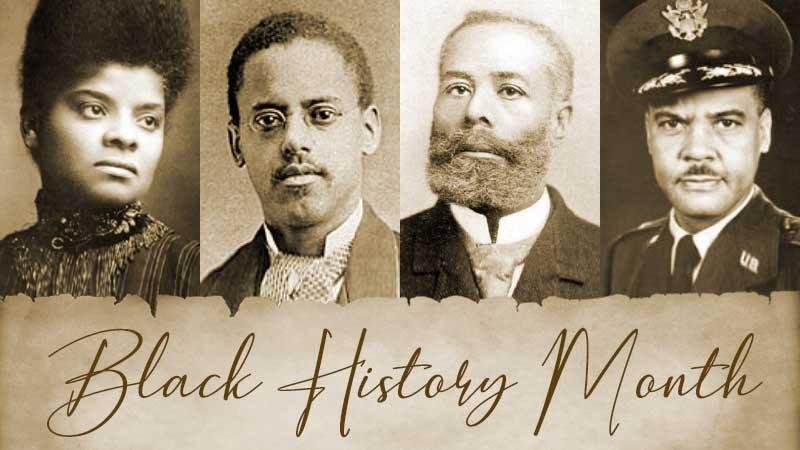Courtesy of Prairie View A&M University
February in the United States has been known since 1976 as Black History Month. This month-long annual celebration of the descendants of enslaved Africans has been exalted as a necessary spotlight on the experiences and contributions of Black Americans to the United States. It has also been lambasted as a divisive tool used to fan the flames of racial tension. While many of us may be familiar with the “Father of Black History,” Dr. Carter G. Woodson, we may not be familiar with the motivations of his pioneering spirit and how we must take up the mantle to defend the validity of Black American history and valiantly protect the right of Black Americans to learn about themselves as full participants, influencers, and products of American history.
Dr. Woodson, born in 1875, was the son of illiterate, formerly enslaved parents. Despite the financial and racial obstacles in his path, Woodson became the second Black man, after W.E.B. Dubois, to receive a doctorate from Harvard University. He later became a faculty member at Howard University. As is required of all university faculty, Woodson joined professional organizations in his field, such as the American Historical Association (AHA). Much to his chagrin, Woodson found that White historians had little interest in the research, presentation, or acknowledgment of the Black historical presence in the United States. Woodson was denied access to AHA conferences, though they did accept his membership dues, a situation akin to the early American battle cry of “no taxation without representation.” To challenge this ignorance of Black history, Woodson created the Association for the Study of Negro Life and History (1915), now known as the Association for the Study of African American Life and History and the Journal of Negro History (1916), now known as the Journal of African American History. Woodson’s coup de grace took place with the creation of Negro History Week in February 1926. He chose the month of February to merge his celebration of Negro history with the birthdates of abolitionist Frederick Douglass and the great emancipator Abraham Lincoln.
In a perfect world, Woodson’s efforts would have rallied American historians regardless of race to assess their biases of what constitutes historical research and use their platforms to produce an inclusive American history that encompasses the diversity, brutality, idealism, and possible redemption that checkers the nation’s past. Unfortunately, our world is a stubborn one. Black History Month in the United States has become a visible yet commercialized nod to Black American history. It has yet to assume its rightful place within the hallowed pages of mainstream U.S. History textbooks.
The history of the United States is built on the premise of Anglo-Saxon exceptionalism, perhaps best supported by Herbert Spencer’s theory of Social Darwinism, and best set in poetry by Rudyard Kipling’s, The White Man’s Burden. Spencer applied Charles Darwin’s theory of natural selection to cultures, arguing that as one species would dominate others in nature, so would one culture rise to dominate others according to racial and social class. Today this phenomenon can be referred to as Eurocentrism, defined by Duncan (2012) as the assumption that Europe is the foundation of all relevant academia, thus setting the stage for the racial bias rampant in U.S. History. As far back as Reconstruction, U.S. History textbooks have portrayed Black Americans as lazy, prone to petty crime, violent, and in need of constant monitoring by Whites. Textbooks also portrayed the continent of Africa as a resource-rich land of natural beauty and exotic animals, yet filled with barbaric, socially backward people (Brosnan, 2016).
In the post-Civil Rights, post-Barack Obama United States, as recently as 2015, a Texas U.S. History textbook referred to enslaved people as “immigrants” and “workers,” implying the violent forced migrations of wives, daughters, mothers, husbands, fathers, and sons was voluntary. Implying that there was some fair exchange for the broken homes and spirits sacrificed to colonialism and capitalism’s profitable bottom line.
In 2022, the American public school system is under attack by those who would have American children denied the opportunity to actualize the ideals of liberty and justice for all. Conservative politicians paint narratives of the Black History “boogeyman,” that if not contained, will scare away white children’s naivete of their ancestors’ sins, or worse, the children of enslaved people will invoke the words of Marcus Garvey, El-Hajj Malik El-Shabazz or Assata Shakur if exposed to them in their mainstream U.S. History text. The fear that drives the anti-Critical Race Theory rhetoric is the 21st-century rendition of slave masters fearing Black literacy to the point that it was punishable by mutilation or death. Black American students have never en masse been afforded the critical race theory that conservatives fear.
Woodson (2015) interviewed Black high school students concerning the representation of Black History in their U.S. History textbooks. The students described their textbooks as overly simplistic regarding Black History, and, at times, the text failed to mention Black people at all. Historically Black Colleges and Universities (HBCU) have, since their inception, provided a guiding light for Black students from across the diaspora to convene in an enclave of Black culture that seeks to enrich them intellectually, socially, emotionally, and politically as described by Ladson-Billings (1994) theory of Culturally Relevant Pedagogy, giving Black students the opportunity to experience four years of Black History whether in the sciences, law, or music.
Though overwhelming, hope is not lost, Black Americans have proven exceptional in our resilience and resistance. The melting pot of West Central African cultures that birthed Soul Food and Rock and Roll, the three-position traffic signal and the Super Soaker water gun, the modern ironing board and the home security system will assuredly remain a force. Since 1619, Black people have buried their bodies and spirits in the richness of American soil, never allowing America to forget her blood-stained foundation nor letting her silence the collective joy that we refuse to abdicate, the joy that we intend to celebrate.

